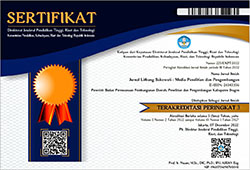Policy Networking of Solid Waste Management at Semarang District
DOI:
https://doi.org/10.32630/sukowati.v8i1.430Keywords:
participation, policy networking, waste managementAbstract
The lack of community participation, coordination between actors is still low, actors aren’t yet closely connected, no binding agreement, domination and lack of commitment by government actors are the reasons why the solid waste management policy didn’t run well. According to sustainable development goals, consistent and committed cooperation is needed among the actors. The importance of this research is to analyse the network of policies on waste management. This study uses DeLeon and Varda's and Thomas and Grindle’s. Data collection uses interview with informants selected through purposeful technique and document studies. This study uses qualitative method. The result is the policy networking of solid waste management at Semarang District has almost fulfilled these seven characteristics. It can be more optimal because the actors that represent don’t include business and media actors, the hierarchical power structure, and the inevitable domination of government actors. Supporting factors include elements of participation, pluralism, and openness. The inhibiting factor is the element of collaboration that hasn't been achieved due to the lack of cooperation with business actors. The results above can be used as a reference for widening the collaboration, especially between business actors, community actors, and media actors in waste management in Semarang District.
Downloads
Published
How to Cite
Issue
Section
License
Copyright (c) 2024 Florentina Nurika Retno Ayu Widuri

This work is licensed under a Creative Commons Attribution 4.0 International License.


















